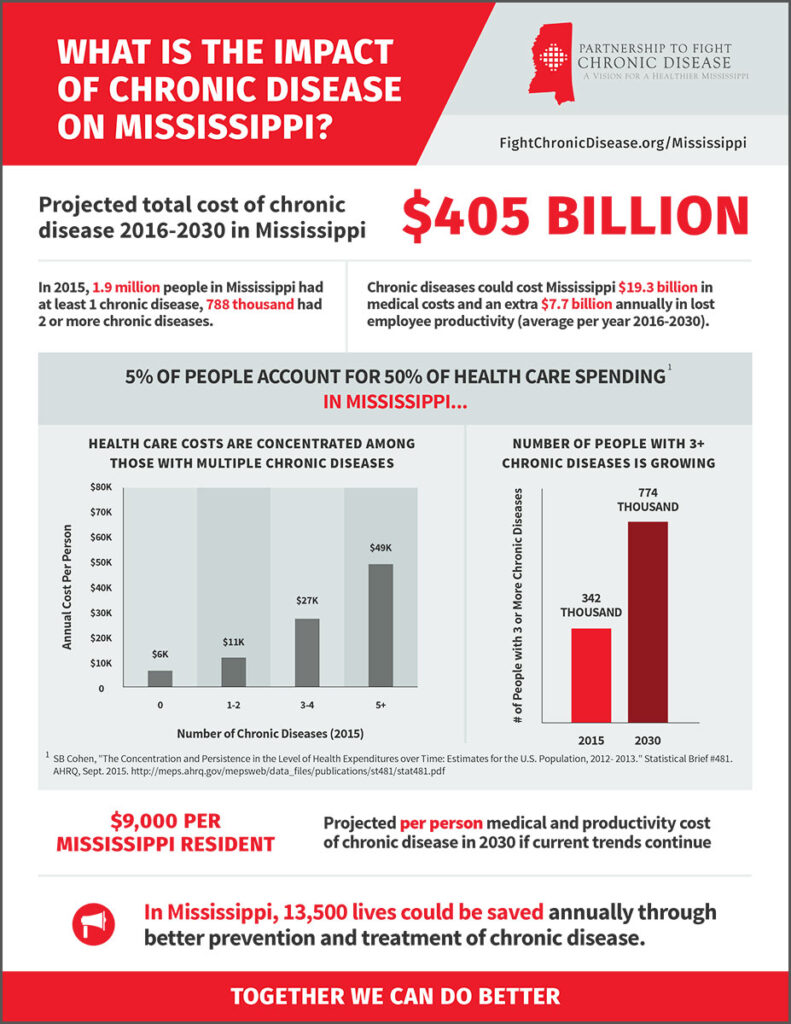It’s no surprise that chronic illness and affordability challenges can cause job loss, slow up wage gain and prevent work entirely. All Americans don’t share this burden equally, though. Minorities—including Black, Hispanic and Native Americans—are up to two times more likely than white people to have major long-term conditions. Additionally, Mississippi has some of the highest chronic disease rates in the nation with projected total costs of chronic disease from 2016 to 2030 reaching $405 billion. Annually, that’s an extra $7.7 billion in lost employee productivity.
Community and business leaders should be at the forefront of health-care reform to ensure patient access and affordability. It’s also clear that voters want their elected officials to prioritize meaningful reforms that will lower their direct out-of-pocket costs, with a majority of Americans believing it is “very important” for Congress to take action to lower health-care prices.
An important program for many minority and vulnerable communities is the 340B Drug Pricing Program. Federal policymakers created the 340B Program in 1992 to lower the cost of outpatient medicines for uninsured and vulnerable patients being treated at safety-net health care entities through manufacturer discounts. While well-intended, the program today is not fulfilling its objectives and needs comprehensive federal reform.
Policymakers Should Focus on Health-care Reforms
Today, the 340B Program is not lowering the cost of outpatient medicines for many patients. In fact, the opposite is happening. Patients are spending 2.5 times more on medicines at 340B program entities than at non-340B entities. This program failure is happening while 340B entities make billions of dollars, with more than half of the top 20 companies on the Fortune 500 list profiting off the program.
While uninsured and vulnerable patients are failing to receive savings on 340B medicines, the program is working to increase the cost of all medicines for all patients—affecting costs throughout the broader healthcare system. This is due to the massive size of the 340B Program today, and because the program incentivizes providers to prescribe high-cost medicines “even when effective and far cheaper options exist.”

The 340B Program is not only affecting the price of medicine, but it’s increasing health-care costs for patients overall. The program is driving consolidation of physician practices into hospitals, which leaves patients with fewer community-based provider options and pushes them into higher cost settings. This trend affects all health-care services, not just services directly related to the 340B Program, including higher costs for diagnostics and primary care.
Today, 63 health-care entities in Mississippi participate in the 340B Program. Yet, there are questions about how these entities are actually helping patients, because more than 35% of these 340B entities in the state are below the national average on charity-care levels. Mississippi’s 340B entities extend way beyond the state and even across the country with more than 1,300 contract pharmacies around the U.S. However, these contract pharmacies are often not accessible to the patients in need who they are intended to support, with more than 20% of 340B contract pharmacies not located in medically underserved areas.
The New York Times published a recent investigation titled, “How a Hospital Chain Used a Poor Neighborhood to Turn Huge Profits” which explored how the 340B Program is eliminating basic medical services, especially in poor and underserved areas. This actively harms patient access to health care.
Thankfully, Congress is hard at work on comprehensive reform and has launched an investigation into how 340B entities are spending their program revenue. A bipartisan group of six U.S. Senators also released a draft of legislation that intends to provide “clarity, transparency, and accountability in the 340B program.”
Congress can follow the Alliance to Save America’s 340B Program (ASAP 340B)—a partnership of community health centers, patients, providers, consumer advocates and leaders from the biopharmaceutical industry—to get the program back on track. ASAP 340B drafted a set of policy principles that ensures prescriptions are offered to patients at a discount and prevents entities from profiting off of the program, as originally intended. With ongoing reform at the federal level, now is not the time to expand the problems within the 340B Program in Mississippi, which is what House Bill 728 and Senate Bill 2145 intend to do.
I urge the Mississippi State Legislature to reject House Bill 728 and Senate Bill 2145. We cannot expand the 340B Program until we can be sure that the program is working to improve health-care access and health equity in Mississippi. Instead, I urge policymakers to focus on health-care reforms that will directly lower patient out-of-pocket costs while ensuring access to innovative medications and treatments.
Let’s work together to nurture a healthy Mississippi.
This MFP Voices essay does not necessarily represent the views of the Mississippi Free Press, its staff or board members. To submit an opinion for the MFP Voices section, send up to 1,200 words and sources fact-checking the included information to azia@mississippifreepress.org. We welcome a wide variety of viewpoints.






